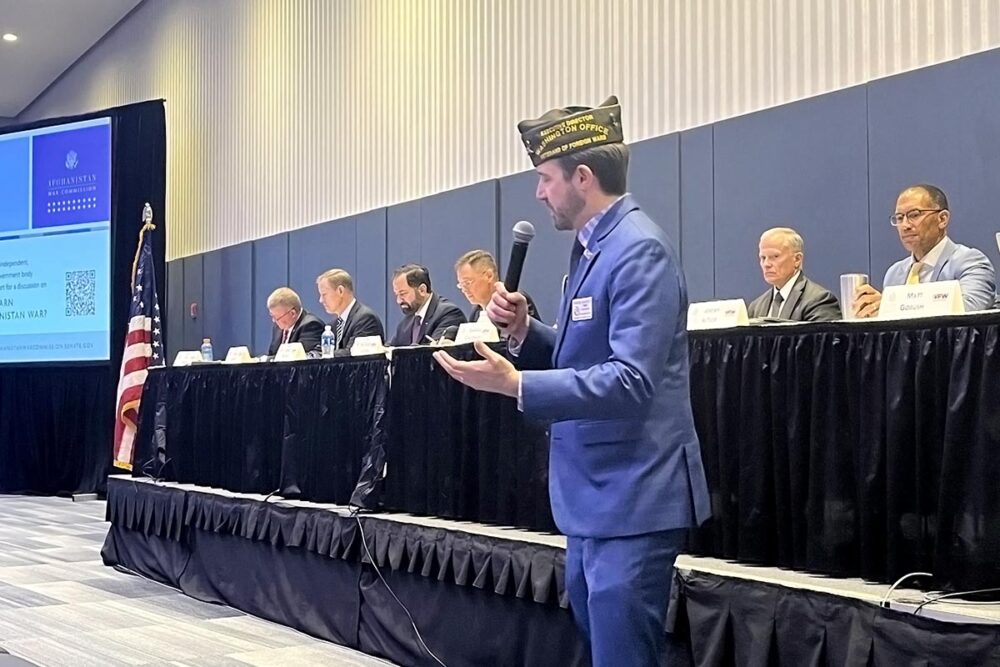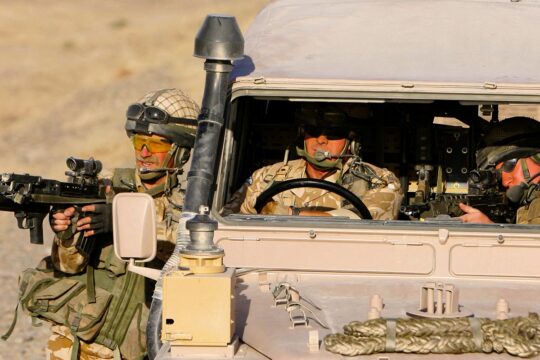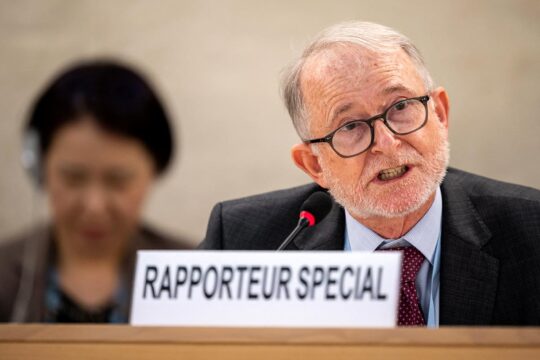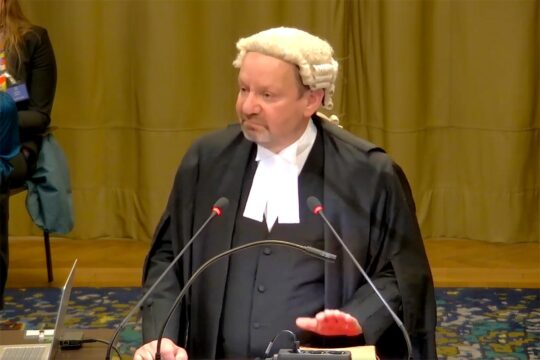Established by the U.S. Congress on 30 September 2021, the Afghanistan War Commission (AWC) is an independent, bipartisan body mandated to conduct an impartial study of the key strategic, diplomatic, and operational decisions the U.S. government made throughout the Afghanistan war (2001-2021). The study’s scope includes counterterrorism efforts, intelligence assessment, reconstruction and development aid, military operations, political and diplomatic endeavours, and the highest-level policy discussions inside the U.S. government. The Commission is expected to provide its findings in a series of comprehensive annual reports, with the last one to be published in August 2026.
The creation of the AWC is a welcome and essential move to bring clarity and closure to the American public, veterans of war, and the Afghan people who experienced the devastation caused by the longest war in U.S. history. However, as part of the lessons learned, which is one of the Commission’s declared objectives, the AWC must examine the U.S.’s position and role regarding accountability for gross human rights violations in Afghanistan’s bloody conflicts. The U.S will be destined to make the same mistakes in its future decisions on Afghanistan if it does not evaluate and rectify its role in relation to accountability for gross human rights violations.
More than four years after the withdrawal of U.S. forces from Afghanistan, Afghan war victims continue to bear the harmful impacts of decades of war, occupation, and betrayal of the promise of human rights and democracy. Justice and accountability remain elusive, particularly for survivors of gross human rights violations. As the AWC continues its investigation into U.S. involvement, its second interim report, released in August 2025, provides a broader picture of military, diplomatic, and intelligence failures. Although the report evinces some self-critique when it comes to governance model, lack of local ownership, corruption, impunity, missed opportunities, and the absence of long-term, coherent objectives by the U.S. and allies – drawing on interviews, public hearings, and document reviews – it is evident that the AWC has not focused on accountability. To deliver a meaningful reckoning, the AWC must confront several uncomfortable truths in its third and final report:
- The U.S. empowered warlords and rights abusers who derailed Afghanistan’s transitional justice;
- It failed to ensure accountability for widespread sexual and gender-based crimes (SGBC);
- It enabled, and in some cases fuelled, a culture of systemic corruption and economic crime;
- U.S.-led NATO forces were responsible for grave human rights violations and potential war crimes against Afghan civilians.
The undermining of transitional justice
One of the gravest errors of the U.S.-led international community’s engagement in Afghanistan was its calculated decision to partner with warlords, many of whom bore responsibility for serious human rights violations during the 1990s civil war and before that. From the early days of the 2001 Bonn Agreement (that organized an early transition after the fall of the Taliban), the U.S. prioritized military objectives over accountability, empowering militia commanders and ex-mujahideen leaders as key players in the fight against the Taliban and al-Qaeda. This policy, purportedly designed to prioritize short term stability, created an environment in which war criminals were rewarded with political office, economic contracts, and international legitimacy. The result was systemic impunity that allowed corruption, land grabs, and human rights violations to flourish under the protection of U.S.-aligned powerbrokers.
It also effectively derailed Afghanistan’s first and only transitional justice initiative, the 2005–2009 Action Plan for Peace, Reconciliation and Justice. Despite being backed by Afghan civil society and the Afghanistan Independent Human Rights Commission (AIHRC), this action plan was quietly shelved. The 2009 Amnesty Law, passed by a warlord-dominated parliament, provided blanket immunity to perpetrators of war crimes and crimes against humanity. Rather than objecting, U.S. officials sustained a strategic alliance with those most responsible for past atrocities, arguing that stability took precedence over justice.
The AWC’s second interim report briefly acknowledges this history, noting that “the United States prioritized empowering strongmen over inclusive governance, further entrenching informal networks.” But this language obscures a more troubling reality: impunity was not an oversight; it was policy. In its assessment of the US’s “decision to work with regional warlords and militia commanders to fight the Taliban,” the AWC should assess and recommend direct accountability for those war-time choices, including a re-evaluation of U.S. support for known abusers, such as the Northern Alliance. Otherwise, it will fail to address the root causes of Afghanistan’s post-2001 fragility and current humanitarian and human rights crisis.
Gender justice: A promise betrayed
A core narrative justification for the U.S.-led intervention in Afghanistan was that it would liberate Afghan women. Yet the U.S.-led intervention consistently failed to centre gender justice or provide sustained support for accountability for sexual and gender-based crimes. Afghan women continued to suffer among the highest rates of sexual and gender-based crimes during the US-led coalition’s war and occupation. Women’s rights, civil society activists, and Afghan women public officials, including judges, journalists, and police officers, were assassinated or attacked with near-total impunity. Rural women of Afghanistan, as AWC Commissioner Anand Gopal has rightly observed, suffered most of all—cut off from basic services, exposed to conflict, and ignored by national and international actors alike.
While the international community helped establish some legal protections, such as the Elimination of Violence Against Women (EVAW) law enacted by presidential decree in 2009, these measures remained under constant threat. The same conservative politicians and warlords who were U.S. allies in the war effort actively resisted implementation of the EVAW law and sought to dilute its provisions through proposed changes to Afghanistan’s criminal code that would effectively deny women protection from forced or child marriage and domestic violence. Even more troubling, the justice system funded by the U.S. and its allies repeatedly failed to protect survivors of sexual and gender-based crimes. Cases of domestic violence, forced marriage, honour killings, and workplace harassment often went uninvestigated. In some instances, victims were prosecuted for “moral crimes.”
During the war years, Afghan women activists and civil society leaders repeatedly warned of a shrinking space for women’s rights. These warnings intensified during the intra-Afghan peace talks in early 2020, where women were largely excluded from negotiations. Yet U.S. policymakers failed to insist on women’s full and meaningful participation or prioritize justice for gender-based crimes in peacebuilding frameworks.
The AWC’s second interim report makes only a passing reference to the instrumentalization of women’s rights and entirely omits any mention of SGBC. This silence is especially concerning given the well-documented prevalence of SGBC during the conflict and the centrality of women’s rights in the public justification of the war effort. By failing to acknowledge these issues, the report overlooks a critical dimension of human rights accountability. In its final year, the AWC must consult with Afghan feminists to investigate why SGBC was allowed to flourish in U.S.-funded institutions and why key allies obstructed progress on gender justice. It must offer clear recommendations on how gender-based crimes can be addressed in any future post-conflict scenarios involving U.S. support.
Corruption and economic crime: The price of impunity
Another enduring legacy of the U.S. war in Afghanistan is the entrenchment of corruption and economic crime. Far from being an unfortunate side effect, corruption was deeply intertwined with the U.S.’s choice of partners and spending models. Many of those implicated in graft and land grabs were allies of the U.S. and its coalition partners. As the Special Investigator General for Afghanistan Reconstruction (SIGAR) found, U.S. contracting companies played a significant role in maintaining and supporting fraud practices and corruption by “inflating threat perceptions, cost inflation, and working with questionable local partners.”
Afghan citizens, meanwhile, paid the price. According to Integrity Watch Afghanistan, in 2016 alone an estimated three billion USD were paid in bribes by Afghan citizens. The same study demonstrated that Afghans considered corruption the third biggest threat to their livelihood after unemployment and instability. This economic violence – enabled by U.S. policies and partners – robbed ordinary Afghans of public trust, service delivery, and long-term development. It also directly contributed to the collapse of the Afghan government in August 2021, as security forces and ministries had decayed under the weight of graft.
It is encouraging that the AWC has begun to acknowledge the critical role corruption played in undermining Afghan institutions and public trust, particularly in relation to U.S. involvement. The second interim report rightly points to how structural dependencies and external funding flows enabled systemic corruption, eroding legitimacy and weakening state authority. However, recognition alone is not sufficient. There is a pressing need for the AWC to go further by recommending concrete measures to directly address the long-term impact of economic violence on human rights of ordinary Afghans. The U.S. Department of State’s 2023 sanctions against the Rahmani family, former Afghan politicians accused of stealing millions from fuel contracts, are a step forward, but represent only a fraction of the systemic corruption that plagued U.S. operations.
Civilian suffering and the failure to hold U.S. forces accountable
During the 20 years of the U.S.’s “War on Terror”, Afghan civilians paid a heavy price, not only at the hands of insurgents, but also those of U.S. led NATO forces. Night raids, drone strikes, and airstrikes repeatedly resulted in high civilian casualties and widespread destruction. These tactics were frequently condemned for their indiscriminate nature, reliance on flawed intelligence, and inadequate coordination, all of which significantly increased harm to non-combatants. Among many incidents that triggered national and international outrage include the 2010 airstrike in Urozgan province, which killed dozens of civilians, and the 2008 bombing of Azizabad, where many women and children were killed. Furthermore, torture and mistreatment of detainees by U.S. military and intelligence forces was a “systematic problem” in Afghanistan, undermining faith in the legality and accountability of its operations.
The AWC’s second interim report acknowledges the damaging impact of these military tactics, noting: “As U.S. and NATO forces were constrained by limited resources and a fragmented mission, and as they also failed to anticipate the depth of local grievances, the insurgency grew in strength and ambition.” The Commission rightly flags the need to assess the extent to which violence inflicted on Afghan civilians, including the killing and injury of civilians, detentions, house searches, and property destruction, contributed to insurgent recruitment and broader instability. While this line of inquiry is promising, the AWC falls short of directly confronting the issue of legal accountability for U.S. and NATO forces involved in these abuses. It is imperative that the AWC call for a thorough and transparent investigation into alleged war crimes and serious human rights violations committed by U.S. and NATO forces during the so-called “war on terror.” Without addressing the responsibility of international actors for civilian harm and potential war crimes, the AWC risks reinforcing the culture of impunity that has long plagued Afghanistan.
Acknowledging that justice is a perquisite to peace
The wounds of war in Afghanistan are deep, and for many war victims, justice has already been denied for decades. As the AWC continues its work, it must acknowledge that empowering warlords at the expense of accountability only ensures further cycles of violence. Without a full reckoning of the U.S. role in undermining justice, particularly by backing warlords and ignoring gender-based violence, the AWC risks writing history with the same blind spots that shaped the war itself. In offering a blueprint for accountability, the AWC should center the voices of Afghan victims, especially women and marginalized groups, and acknowledge that justice is not an obstacle to peace, but its prerequisite. If the U.S. is serious about learning from Afghanistan, it must start by confronting the legacy of impunity it left behind.
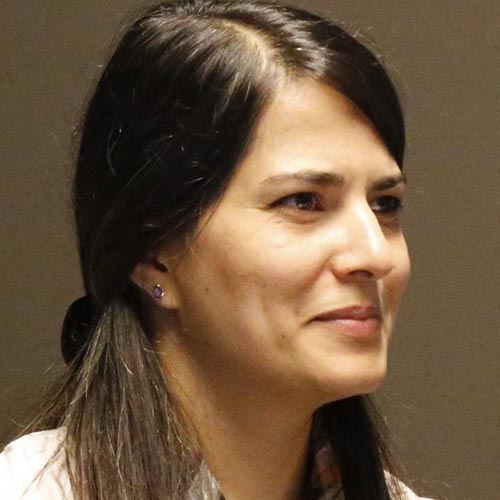
Dr. Huma Saeed is a criminologist specializing in transitional justice. She is a Senior Transitional Justice Fellow at the City University of New York and a Roster Expert with Justice Rapid Response. She serves as a consultant to international organisations, including the United Nations, and contributes to policy and expert forums on justice and human rights in post-conflict contexts. She has published widely on transitional justice, economic-state crime, gender justice, and victims’ empowerment.


